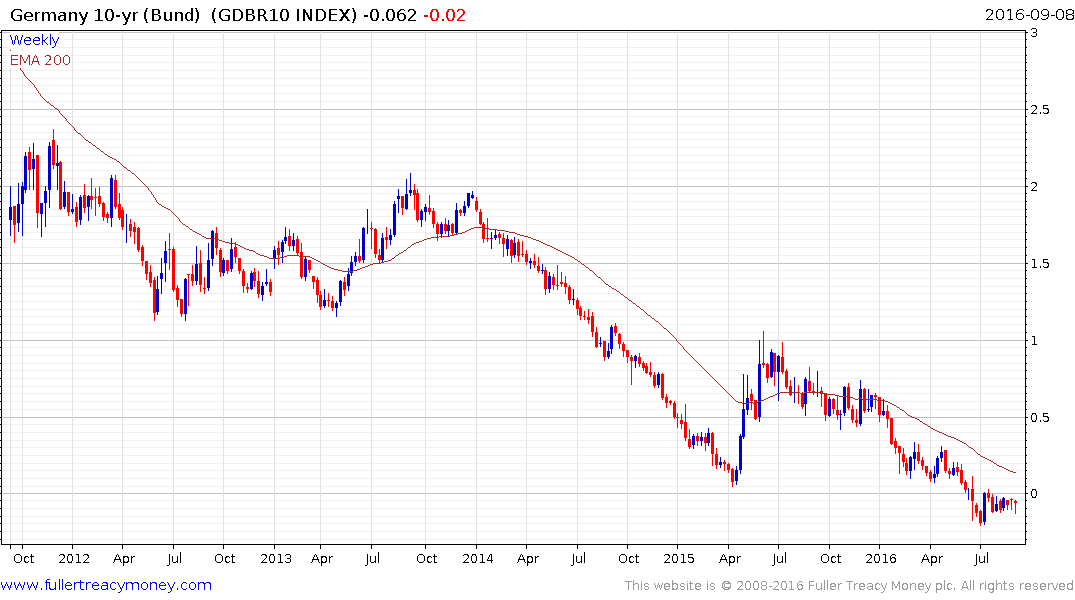Draghi Dialing Down the Drama May Mark Wane of Monetary Activism
This article by Jeff Black for Bloomberg may be of interest to subscribers. Here is a section:
Take European Central Bank President Mario Draghi, who on Thursday talked up the effectiveness of his institution’s stimulus policies to date, but damped expectations that he’ll load up with fresh asset-buying soon. His only new announcement after again downgrading euro-area growth forecasts was that officials will look into how to ensure the current program overcomes a worsening scarcity of bonds.
Even with the scheduled end of the 1.7 trillion-euro ($1.9 trillion) plan just six months away, Draghi said policy makers meeting in Frankfurt haven’t yet discussed what they’ll do when that day comes. If a new laissez-faire tone is creeping in to replace years of hyperactivity, it may be a signal that the division of labor between central banks and governments in providing economic support is shifting.
“Draghi doesn’t sound like a central banker who’s in any hurry to ease further,” said Tim Graf, head of European macro strategy at State Street in London. His stance “fits in with the G-20 statements about using all actors to support growth, including the fiscal side. Taking ever-easier monetary policy for granted is becoming less valid.”
The ECB faces a number of obstacles to employing a US style quantitative easing program within its jurisdiction. Among these are the relative depths of the respective markets. The ECB has self-imposed rules about how much of any particular issue it can own and how much debt of any one country it can purchase. Additionally, the EU’s corporate bond and asset backed markets are not nearly as liquid as their US equivalents, which represent a challenge for the size of purchases the ECB needs to make to have an influence on the market.
Against the background of needing to change the rules it has adopted for increasingly monetary accommodation the ECB has followed a “needs must” approach. Whenever a crisis evolves, and there are have no shortage of things to worry about, they have made whatever changes are necessary to meet the challenge. Right now central bankers are trying to encourage governments to meet them half way and boost fiscal stimulus so they may be less inclined to deliver additional quantitative easing in the short term. However that does not preclude additional action whenever it is required; such as when the Italians vote on approving reforms to their Senate or when the UK eventually activates Article 50 of the Lisbon Treaty.

German Bund yields hit a low near -20 basis points in July and have been ranging above that level since. The yield firmed today from the lower side of its short-term range to suggest a reversion towards the mean is still underway. However a sustained move the trend mean will be required to signal a return to supply dominance beyond the short term.


